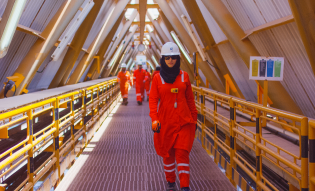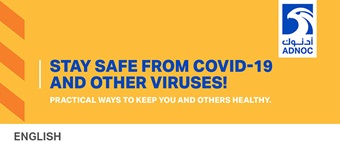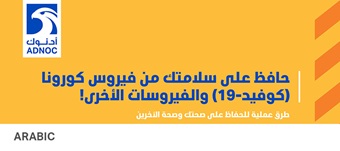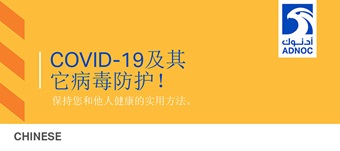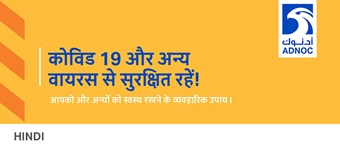The continued success of our business is embedded in our commitment to the health and safety of our people
Hamburger Buttonclosesearch
-
Our Storykeyboard_arrow_right
Our Story
-
Overview
Providing Energy For Lifehttps://afdshd01.adnoc.ae/adn-prd/-/media/adnoc-v2/adnoc-enhancement-v2/images/mega-navigation/our-story/overview-highres.ashx?h=768&w=560&hash=CD3F5ED7B75BF2551E96D33498547A9C
-
Who We Are
ADNOC is a leading diversified energy group taking transformative steps to make today’s energy cleaner while investing in the clean energies of tomorrow. Our network of fully-integrated businesses operates across the energy value chain, helping us to responsibly meet the demands of an ever-changing energy market.https://afdshd01.adnoc.ae/adn-prd/-/media/adnoc-v2/adnoc-enhancement-v2/images/mega-navigation/our-story/1-overview.ashx?h=384&w=280&hash=827D4455EA5E544CF6DE1ED22CBA78EB
-
Our Strategy
Maximum Energy. Minimum Emissions. Under the leadership of His Excellency Dr. Sultan Ahmed Al Jaber, ADNOC Managing Director and Group CEO, we are on a journey of transformation, placing decarbonization and sustainability at the heart of our strategy. We are supplying the world with the energy that it needs, delivering tangible progress towards the energy transition and future-proofing our business. Our growth strategy is focused on maximizing our competitive advantage as a leading low-cost and lower-carbon oil and gas producer and is underpinned by our commitment to 100% HSE and sustainability.https://afdshd01.adnoc.ae/adn-prd/-/media/adnoc-v2/adnoc-enhancement-v2/images/mega-navigation/our-story/2-strategy.ashx?h=384&w=280&hash=38BD15714F4156B44D36C8F8A06C83A3
-
Our Values
Progressive Collaborative Respectful Responsible Efficienthttps://afdshd01.adnoc.ae/adn-prd/-/media/adnoc-v2/adnoc-enhancement-v2/images/mega-navigation/our-story/3-values.ashx?h=384&w=280&hash=982E92B9DE7BC5B2F052332351D699DD
-
Our Heritage
Founded in 1971, ADNOC is a leading diversified energy group, wholly owned by the Abu Dhabi Government.https://afdshd01.adnoc.ae/adn-prd/-/media/adnoc-v2/adnoc-enhancement-v2/images/mega-navigation/our-story/4-heritage.ashx?h=384&w=280&hash=A27B2AB7CA90EAF5BA12E9A080270DEF
-
Our Leadership
The Executive Management team is responsible for overseeing ADNOC’s operational and business development activities.https://afdshd01.adnoc.ae/adn-prd/-/media/adnoc-v2/adnoc-enhancement-v2/images/mega-navigation/our-story/5-leadership.ashx?h=384&w=280&hash=20A1B4F0FBFC50968DF6F5CA260C564F
-
Our Partners
Over the past 4 decades, ADNOC has established long-standing partnerships with a number of global energy companies, which have resulted in a series of mutually beneficial investments and initiatives.https://afdshd01.adnoc.ae/adn-prd/-/media/adnoc-v2/adnoc-enhancement-v2/images/mega-navigation/our-story/6-partnership.ashx?h=384&w=280&hash=770813A69541BBB9993037A31991BF84
-
Code of Conduct
ADNOC is committed to operating with integrity and maintaining the highest professional and ethical standards in every aspect of its business.
Our Code of Conduct outlines the legal and ethical standards that we expect from each of our employees, partners and suppliers. It extends to all aspects of our business activities, including how we engage third parties and contractors, the security practices that we enforce, and how we manufacture and deliver our products.https://afdshd01.adnoc.ae/adn-prd/-/media/adnoc-v2/adnoc-enhancement-v2/images/mega-navigation/our-story/7-code-of-conduct.ashx?h=384&w=280&hash=954C31AA8CC13BBBDB63EA5FD281867D -
Supplier and Partner Code of Ethics
The ADNOC Group Supplier Code of Business Ethics outlines the minimum standards of compliance and ethical practices that we expect from each of our partners and suppliers.https://afdshd01.adnoc.ae/adn-prd/-/media/adnoc-v2/adnoc-enhancement-v2/images/mega-navigation/sustainability7-energy-for-responsibility.ashx?h=384&w=280&hash=2D7460C86578EB9D910BB3588FE088C3
Key Facts
4.85m barrels capacity of oil per day
11.5bcf of natural gas per day
Quick Links -
Overview
-
Sustainabilitykeyboard_arrow_right
Sustainability
-
Sustainability Strategy
As a responsible energy provider, we are committed to creating long-term value for our people, business, and society.https://afdshd01.adnoc.ae/adn-prd/-/media/adnoc-v2/adnoc-enhancement-v2/images/mega-navigation/sustainability/1-sustainability.ashx?h=384&w=280&hash=BD9E5DEE91FA44A6297188A23BBE740C
-
Sustainability Report
https://afdshd01.adnoc.ae/adn-prd/-/media/adnoc-v2/adnoc-enhancement-v2/images/mega-navigation/sustainability/1-sustainability.ashx?h=384&w=280&hash=BD9E5DEE91FA44A6297188A23BBE740C
-
Together Towards Net Zero
keyboard_arrow_right
Our 'Advancing Towards Net Zero' publication charts our Net Zero by 2045 ambition.https://afdshd01.adnoc.ae/adn-prd/-/media/adnoc-v2/adnoc-enhancement-v2/images/mega-navigation/sustainability/1-sustainability.ashx?h=384&w=280&hash=BD9E5DEE91FA44A6297188A23BBE740C
Together Towards Net Zero
-
Overview
Our 'Advancing Towards Net Zero' publication charts our Net Zero by 2045 ambition.https://afdshd01.adnoc.ae/adn-prd/-/media/adnoc-v2/adnoc-enhancement-v2/images/mega-navigation/sustainability/1-sustainability.ashx?h=384&w=280&hash=BD9E5DEE91FA44A6297188A23BBE740C
-
Decarbonizing Our Operations
We create long-term value for our stakeholders by delivering energy with progressively lower emissions.https://afdshd01.adnoc.ae/adn-prd/-/media/adnoc-v2/adnoc-enhancement-v2/images/mega-navigation/sustainability2-decarbonizing-our-operations.ashx?h=384&w=280&hash=0AE462FD6BE083A41EA4E642426A318E
-
Deploying Pioneering Technologies
Technology is a key enabler of our net zero ambition. We are exploring and deploying technologies to enhance our emissions monitoring and making targeted interventions to reduce the carbon footprint of our operations.https://afdshd01.adnoc.ae/adn-prd/-/media/adnoc-v2/adnoc-enhancement-v2/images/sustainability/navigation/leveraging-technology-card-image.ashx?h=384&w=280&hash=A1556D7364E655D17D3CB5F2FDF62BEA
-
Helping Customers Reduce Emissions
We are investing in new energy solutions and lower-carbon technologies, establishing impactful partnerships to support the global energy transition and further reducing our carbon footprint to mitigate the impacts of climate change.https://afdshd01.adnoc.ae/adn-prd/-/media/adnoc-v2/adnoc-enhancement-v2/images/sustainability/navigation/sustainability-card-2.ashx?h=364&w=418&hash=35E4F2E69C0C6BF50C79B4188DBEEB57
SustainabilityOur 2030 Sustainability Strategy test
-
Overview
-
Protecting Nature & Biodiversity
https://afdshd01.adnoc.ae/adn-prd/-/media/adnoc-v2/adnoc-enhancement-v2/images/mega-navigation/sustainability/1-sustainability.ashx?h=384&w=280&hash=BD9E5DEE91FA44A6297188A23BBE740C
-
Empowering People & Driving Prosperity
keyboard_arrow_right
As a responsible energy provider, we are committed to creating long-term value for our people, business, and society.https://afdshd01.adnoc.ae/adn-prd/-/media/adnoc-v2/adnoc-enhancement-v2/images/mega-navigation/sustainability/1-sustainability.ashx?h=384&w=280&hash=BD9E5DEE91FA44A6297188A23BBE740C
Empowering People & Driving Prosperity
-
Overview
As a responsible energy provider, we are committed to creating long-term value for our people, business, and society.https://afdshd01.adnoc.ae/adn-prd/-/media/adnoc-v2/adnoc-enhancement-v2/images/mega-navigation/sustainability/1-sustainability.ashx?h=384&w=280&hash=BD9E5DEE91FA44A6297188A23BBE740C
-
Creating In-Country Value
We believe the success of our business is linked to the prosperity of our community.https://afdshd01.adnoc.ae/adn-prd/-/media/adnoc-v2/images/navigation-and-cards/adnoc-enhancement-images-3-tasks/adnoc-enhancement-3---missing-images/desktop/navigation/rectangle-22.ashx?h=191&w=315&hash=33AC5A75C32AEDC10C292B42AC5B4A20
-
Building a Knowledge Based Economy
Our stakeholders are critical to our success and our ambition is to remain a reliable and responsible provider of energy.https://afdshd01.adnoc.ae/adn-prd/-/media/adnoc-v2/adnoc-enhancements/sustainability-card-4.ashx?h=364&w=418&hash=54D52CE33EB5345CD7D0534D728079F2
-
Workforce Diversity & Gender Balance
Our stakeholders are critical to our success and our ambition is to remain a reliable and responsible provider of energy.https://afdshd01.adnoc.ae/adn-prd/-/media/adnoc-v2/adnoc-enhancement-v2/images/sustainability/navigation/workforce-diversity-and-gender-balance.ashx?h=384&w=280&hash=3334FBE48661C208B3398989CF97786D
SustainabilityOur 2030 Sustainability Strategy test
-
Overview
-
Keeping our People Safe
Our unwavering commitment to 100% HSE.https://afdshd01.adnoc.ae/adn-prd/-/media/adnoc-v2/adnoc-enhancement-v2/images/mega-navigation/our-business/10-downstream.ashx?h=384&w=280&hash=FABD453A67206F8E7E33F3A6003658DC
Quick Links -
Sustainability Strategy
-
Our Businesskeyboard_arrow_right
Our Business
-
Low Carbon Solutions & International Growth
keyboard_arrow_right
We focus on renewable energy, clean hydrogen and Carbon Capture and Storage (CCS), as well as international expansion in gas, Liquefied Natural Gas (LNG) and chemicals. As we build on ADNOC's track record as a reliable and responsible global energy provider, we strive to deepen our international partnerships and broaden our reach to provide low-carbon intensity energies and drive the development and production of new energies.https://afdshd01.adnoc.ae/adn-prd/-/media/adnoc-v2/adnoc-enhancement-v2/images/mega-navigation/our-business/1-our-business.ashx?h=384&w=280&hash=AB79F6AF91F07472F8FA13CA31197138
Low Carbon Solutions & International Growth
-
Overview
We focus on renewable energy, clean hydrogen and Carbon Capture and Storage (CCS), as well as international expansion in gas, Liquefied Natural Gas (LNG) and chemicals. As we build on ADNOC's track record as a reliable and responsible global energy provider, we strive to deepen our international partnerships and broaden our reach to provide low-carbon intensity energies and drive the development and production of new energies.https://afdshd01.adnoc.ae/adn-prd/-/media/adnoc-v2/adnoc-enhancement-v2/images/mega-navigation/our-business/1-our-business.ashx?h=384&w=280&hash=AB79F6AF91F07472F8FA13CA31197138
-
Hydrogen
With our fast-growing clean hydrogen business, we are well-placed to expand upon the UAE’s position as a regional leader in production of low and no carbon fuels, chemicals and refined products.https://afdshd01.adnoc.ae/adn-prd/-/media/adnoc-v2/adnoc-enhancement-v2/images/mega-navigation/our-business/2-hydrogen.ashx?h=384&w=280&hash=37F1722ECA2886F1EC6AA025ADA5C7B3 -
Masdar
Masdar, the UAE's clean energy powerhouse, is an important pillar of our strategy to expand our lower-carbon product portfolio and invest in new, cleaner energy solutions.https://afdshd01.adnoc.ae/adn-prd/-/media/adnoc-v2/adnoc-enhancement-v2/images/mega-navigation/our-business/3-masdar.ashx?h=384&w=280&hash=EDAD3975A0B25D9D32E7EB5D309A8EB6
Our BusinessWe adopt a proactive and adaptive marketing model and are developing new trading capabilities to better meet the growing demand for oil, gas and refined products around the world.
-
Overview
-
Upstream
keyboard_arrow_right
We unlock and maximize value from Abu Dhabi’s world-scale low-cost lower-carbon intensity hydrocarbon resources for the benefit of the UAE, and our partners and customers around the world.https://afdshd01.adnoc.ae/adn-prd/-/media/adnoc-v2/adnoc-enhancement-v2/images/mega-navigation/sustainability9-occupational-health.ashx?h=384&w=280&hash=F77DF41565A8F168BBED25EEA56DD1C2
Upstream
-
Overview
We unlock and maximize value from Abu Dhabi’s world-scale low-cost lower-carbon intensity hydrocarbon resources for the benefit of the UAE, and our partners and customers around the world.https://afdshd01.adnoc.ae/adn-prd/-/media/adnoc-v2/adnoc-enhancement-v2/images/mega-navigation/sustainability9-occupational-health.ashx?h=384&w=280&hash=F77DF41565A8F168BBED25EEA56DD1C2
-
ADNOC Drilling
We are the largest drilling company in the Middle East by rig fleet size, and publicly listed on ADX in October 2021. We are a crucial link in the upstream value chain, enabling ADNOC to unlock the UAE’s conventional and unconventional oil and gas resources reliably and efficiently.https://afdshd01.adnoc.ae/adn-prd/-/media/adnoc-v2/adnoc-enhancement-v2/images/mega-navigation/sustainability/sustainability10-beat-the-heat.ashx?h=384&w=280&hash=3E6FFB21E6D637FF96E688AFADFB8C54
-
ADNOC Offshore
We are the largest offshore oil and gas producer in the UAE, accounting for about half of Abu Dhabi’s total oil production capacity, with operations across nine established fields, six artificial islands, three natural islands, eight offshore super complexes and over 400 offshore structures.https://afdshd01.adnoc.ae/adn-prd/-/media/adnoc-v2/adnoc-enhancement-v2/images/mega-navigation/our-business/7-offshore.ashx?h=384&w=280&hash=2E2576EE24DA8CD8CC17B2FBFD9C4B4B
-
ADNOC Onshore
We are the legacy producer within ADNOC, with our historic operations dating back as far as 1939, and home of Murban grade crude. We manage 11 onshore fields and two world-class export terminals, with our concession area spanning 12,000 square meters.https://afdshd01.adnoc.ae/adn-prd/-/media/adnoc-v2/adnoc-enhancement-v2/images/mega-navigation/our-business/8-onshore.ashx?h=384&w=280&hash=CF4119FAAD19BFB256A0DB89BB507D3A
-
ADNOC Sour Gas
We operate the Shah Gas Field and Plant, located 210km southwest of Abu Dhabi city, producing natural (sales) gas, ethane, NGLs, condensate and sulfur. As of 2021, we account for about 5% of the world's total sulfur production and we are the world’s largest producer of granulated sulfur from a single site.https://afdshd01.adnoc.ae/adn-prd/-/media/adnoc-v2/adnoc-enhancement-v2/images/mega-navigation/our-business/9-sourgas.ashx?h=384&w=280&hash=E783A6092E53412A3C489A6D20451978
-
Al Dhafra Petroleum
We focus on developing new oil and gas fields in an onshore concession block located in the southeast of Abu Dhabi, supporting ADNOC’s ambition to cost-efficiently unlock and maximize value from all of Abu Dhabi’s oil and gas resources.https://afdshd01.adnoc.ae/adn-prd/-/media/adnoc-v2/adnoc-enhancement-v2/images/mega-navigation/our-business/8-onshore.ashx?h=384&w=280&hash=CF4119FAAD19BFB256A0DB89BB507D3A
-
Al Yasat Petroleum
We explore and develop smaller fields that require a lean operating model in order to optimize their production and value potential. We are implementing a digital and innovation strategy to improve safety and create a digital oil field with autonomous wells and unmanned operations.https://afdshd01.adnoc.ae/adn-prd/-/media/adnoc-v2/adnoc-enhancement-v2/images/mega-navigation/our-business/6-yasat.ashx?h=384&w=280&hash=1AF6243801932A8FB7CE8C924F5FFCEE
Our BusinessWe adopt a proactive and adaptive marketing model and are developing new trading capabilities to better meet the growing demand for oil, gas and refined products around the world.
-
Overview
-
Downstream Industry, Marketing & Trading
keyboard_arrow_right
We leverage the scale, integration and diversity of our portfolio and capabilities to deliver value and drive economic diversification and industrial growth for the UAE.https://afdshd01.adnoc.ae/adn-prd/-/media/sub-brands/downstream/downstream-1.ashx?h=386&w=640&hash=F75689F0D2C0D0E22C2F8CF6DB0E30EE
Downstream Industry, Marketing & Trading
-
Overview
We leverage the scale, integration and diversity of our portfolio and capabilities to deliver value and drive economic diversification and industrial growth for the UAE.https://afdshd01.adnoc.ae/adn-prd/-/media/sub-brands/downstream/downstream-1.ashx?h=386&w=640&hash=F75689F0D2C0D0E22C2F8CF6DB0E30EE
-
ADNOC Refining
We supply over 40 million metric tons of high-quality refined products to markets around the world and we manage a 1,600km pipeline network across Abu Dhabi, delivering refined products to other ADNOC Group companies.https://afdshd01.adnoc.ae/adn-prd/-/media/adnoc-v2/adnoc-enhancement-v2/images/mega-navigation/our-business/11-refining.ashx?h=384&w=280&hash=B4668A11296C21ED17096E5039EDB09F
-
ADNOC Gas
We are a world-class gas processing and marketing company, publicly listed on ADX in March 2023. As a leading global player, we serve a wide array of domestic and international customers with an expanding portfolio of gas products.https://afdshd01.adnoc.ae/adn-prd/-/media/adnoc-v2/adnoc-enhancement-v2/images/mega-navigation/01.ashx?h=384&w=280&hash=FA90FE8AEC72E8D2FA07B39041F65992
-
Borouge
A leading petrochemical company, publicly listed on ADX in June 2022, that provides innovative and differentiated polyolefin solutions for the infrastructure, energy, mobility, agriculture, healthcare and advanced packaging industries.https://afdshd01.adnoc.ae/adn-prd/-/media/adnoc-v2/images/navigation-and-cards/adnoc-enhancement-images-3-tasks/adnoc-enhancement--1-hero-images/desktop/nav/borouge.ashx?h=191&w=315&hash=BCBF8C69542F899EC181D8AFCF6A6072
-
Fertiglobe
We are the world's largest seaborne exporter of urea and ammonia, the largest producer of nitrogen fertilizer by production capacity in MENA by production capacity and an early mover in clean ammonia. Publicly listed on ADX in October 2021, we have a production capacity of 6.7 million tons of sellable urea and merchant ammonia.https://afdshd01.adnoc.ae/adn-prd/-/media/adnoc-v2/adnoc-enhancement-v2/images/mega-navigation/sustainabilityour-2030-sustainability-strategy.ashx?h=384&w=280&hash=491650F702985F5C8065362D329C6F8A
-
TA'ZIZ
We are an industrial services and logistics park that drives and enables expansion of the Al Ruwais Industrial City and Abu Dhabi’s wider chemicals, manufacturing and industrial sectors. We are a critical enabler of the UAE’s industrial development and manufacturing growth ambitions.https://afdshd01.adnoc.ae/adn-prd/-/media/adnoc-v2/adnoc-enhancement-v2/images/mega-navigation/08.ashx?h=384&w=280&hash=10C83BED81A1B922BBBA56F0F40A58C5
-
ADNOC Global Trading
We are the international, fully-fledged trading company for ADNOC’s refined products and supply feedstocks.https://afdshd01.adnoc.ae/adn-prd/-/media/adnoc-v2/adnoc-enhancement-v2/images/mega-navigation/our-business/12-global-trading.ashx?h=384&w=280&hash=91E8A591283C476F2D93738AA583F59F
-
ADNOC Trading
We focus on trading crude oil to complement ADNOC’s reliable and stable supply to our domestic and international customers, supporting ADNOC’s ambition to capture incremental value from every barrel oil it produces and trades.https://afdshd01.adnoc.ae/adn-prd/-/media/adnoc-v2/adnoc-enhancement-v2/images/mega-navigation/our-business/13-adnoc-trading.ashx?h=384&w=280&hash=ECDEDAC80EE254EDE0EB0B627108A52C
-
ADNOC Logistics and Services
We are the region’s largest shipping and integrated logistics companies and the dedicated and vital logistics arm for ADNOC, delivering energy products to more than 100 customers in over 50 countries. Listed on ADX in June 2023.https://afdshd01.adnoc.ae/adn-prd/-/media/adnoc-v2/adnoc-enhancement-v2/images/mega-navigation/02.ashx?h=384&w=280&hash=41105F1B9275715853CF713D5225446B
-
ADNOC Distribution
We are the UAE’s leading fuel distributor and convenience store operator with over 450 retail fuel stations and more than 350 convenience stores, and the first ADNOC Group company to list on ADX in December 2017.https://afdshd01.adnoc.ae/adn-prd/-/media/adnoc-v2/adnoc-enhancement-v2/images/mega-navigation/our-business/14-adnoc-distribution.ashx?h=384&w=280&hash=36701CD95D0EC2EAA37504FF56757444
-
ADNOC City Gas
We offer a full service for Natural Gas, supplying and distributing solutions to residential, commercial, and industrial customers.https://afdshd01.adnoc.ae/adn-prd/-/media/adnoc-v2/adnoc-enhancement-v2/images/mega-navigation/our-business/15-adnoc-gas.ashx?h=384&w=280&hash=17F064EEE6FFB11527170C6E6310A459
Our BusinessWe adopt a proactive and adaptive marketing model and are developing new trading capabilities to better meet the growing demand for oil, gas and refined products around the world.
-
Overview
Quick Links -
Low Carbon Solutions & International Growth
keyboard_arrow_right
-
Our Projectskeyboard_arrow_right
Our Projects
-
Overview
Our ongoing projects are dedicated to unlocking our nation’s resources responsibly and sustainably.https://afdshd01.adnoc.ae/adn-prd/-/media/adnoc-v2/adnoc-enhancement-v2/images/mega-navigation/our-projects/1-our-projects.ashx?h=384&w=280&hash=C87B65CCED56DDF303B84AFAA263995A
-
ENERGYai
https://afdshd01.adnoc.ae/adn-prd/-/media/adnoc-v2/images/energyai/04-sep/banner/1440-x-810-(4).ashx
-
Ruwais LNG
The first LNG export facility in the MENA region to run on clean power. Producing 9.6 million tons of LNG per year providing access to reliable and affordable energy.https://afdshd01.adnoc.ae/adn-prd/-/media/adnoc-v2/images/our-projects/09.ashx?h=2592&w=4618&hash=DC8BF0583AAAE430EA320EC5130B3697
-
Offshore Electrification
The supply of clean grid power will reduce the carbon footprint of our offshore upstream operations by up to 50%.https://afdshd01.adnoc.ae/adn-prd/-/media/adnoc-v2/adnoc-enhancement-v2/images/mega-navigation/04.ashx?h=384&w=280&hash=B8E63F5915C21AED7C7DAD044F7B52BE
-
Waste Heat Recovery
We are recovering and reusing heat from the General Utilities Plant at Al Ruwais Industrial City to generate up to 230 megawatts of electricity and 62,400 cubic meters of water per day, with no additional CO2 emissions.https://afdshd01.adnoc.ae/adn-prd/-/media/adnoc-v2/adnoc-enhancement-v2/images/mega-navigation/our-projects/3-waste-heat-recovery.ashx?h=384&w=280&hash=DEFC482F1B4AA7F2F5AB837571CEB942
-
3D Seismic Survey
We are conducting the world’s largest combined onshore and offshore 3D seismic survey spanning across the Abu Dhabi Emirate.https://afdshd01.adnoc.ae/adn-prd/-/media/adnoc-v2/adnoc-enhancement-v2/images/mega-navigation/our-projects/4-3d-seismic-survey.ashx?h=384&w=280&hash=E05DE9E57D2577FFC29BF11368150320
-
Hail & Ghasha Project
The pioneering project will play a vital role in meeting the UAE’s goal of gas self-sufficiency and rising demand for exports.https://afdshd01.adnoc.ae/adn-prd/-/media/adnoc-v2/adnoc-enhancement-v2/images/mega-navigation/our-projects/5-ghasha-mega-project.ashx?h=384&w=280&hash=AAB1C9370BEFAC787CCFBECD2EB1E30E
-
Unconventional Gas
As a regional pioneer in unconventionals, we started exploration and appraisal activities in 2015 and delivered the first unconventional gas in 2020.https://afdshd01.adnoc.ae/adn-prd/-/media/adnoc-v2/adnoc-enhancement-v2/images/mega-navigation/our-projects/6-unconventional-gas.ashx?h=384&w=280&hash=53A8AC55A114EC342303429862D04975
-
Crude Flexibility
Crude Flexibility Project will allow the Al Ruwais Industrial City Refinery-I to process Upper Zakum grade crude from ADNOC’s offshore fields, in addition to more than 50 other grades from around the world.https://afdshd01.adnoc.ae/adn-prd/-/media/adnoc-v2/adnoc-enhancement-v2/images/mega-navigation/our-projects/7-crude-flexibility.ashx?h=384&w=280&hash=09513B3BB187C2E52F3E533DEF132610
Quick Links -
Overview
- Our Corporate Responsibility






